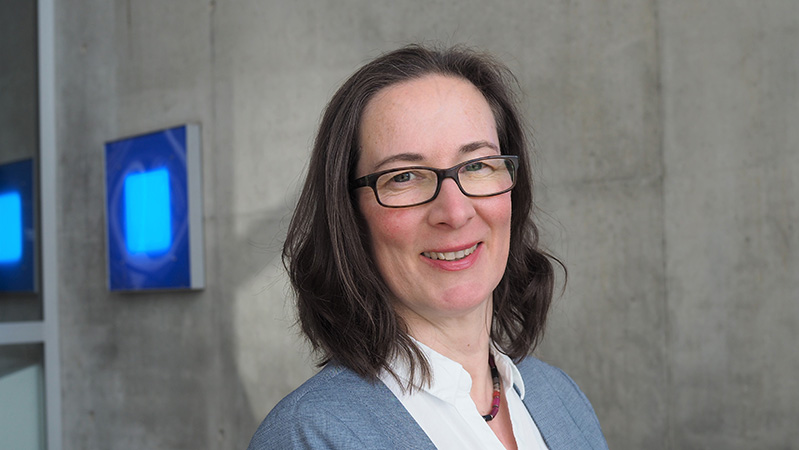You've just mentioned it and it's also part of the current political discourse: international skilled workers for the German labour market. Universities are being ascribed a special role – they are supposed to train tomorrow's skilled workers. What can HAW Hamburg actually do in this regard?
In my view, universities are basically the ideal place for recruiting and training international skilled workers. International students get to know the local culture, learn German and can start at a job in Germany directly after they finish their studies.
HAW Hamburg can support international students with this process. These are some of the questions that come up: Where do I find job postings? What should an application portfolio look like? What is a job interview in Germany like? What do employers in Germany expect from me? And: What can I expect from an employer in Germany? What kind of informal rules do I need to expect in a workplace? Job markets are very strongly influenced by the specific culture, and there's a big difference if I apply for a job in India, the USA or Germany. It's not just the application process that operates differently; the way people work together in their jobs is also different.
HAW Hamburg in particular has a large number of contacts at companies in the Hamburg region and can serve as an intermediary. For example, in Koblenz, where I worked at the Universität Koblenz-Landau, I offered 'business speed dating' for international students together with the Federal Employment Agency and a number of companies. They were then able to get to know one another in a low-pressure way in 10-minute conversations.
At one time there were also two projects at HAW Hamburg funded by the German Academic Exchange Service (DAAD) to support the integration of international students into the labour market. Unfortunately, the implementation period for these projects fell partially during the Covid pandemic, and we were held up as a result. There is now a new DAAD programme for international skilled workers which we are going to apply for in the fall. The focus is on supporting students throughout their studies and increasing their success, as well as on improving employability to increase skilled-worker recruitment.
In addition to supporting international students on their path to HAW Hamburg, you and your colleagues also support students here at the university. What issues are on your agenda and where are there interfaces with other areas of the university?
I see student marketing, onboarding and the improvement of support structures as highly relevant. These could be made more of a focus at HAW Hamburg. A very important issue is also the study success of international students. A few years ago there was a DAAD study which found that international students withdraw from university studies much more often than German students.
For example, international students often face greater obstacles when looking for an apartment and financially than students already generally do. Additionally, they are confronted with a different academic culture and frequently feel foreign and homesick. Better integration of international students at the university and in the Hamburg region can counter this. We could achieve this, for example, through more intensive exchange between international students and students who have grown up and gone to school in Germany. I see the Students' Union (AStA) and student initiatives as good additional points of contact in this regard. The International Office organises a Welcome Week at the start of the semester. This year we offered it four times due to the change in the semester dates, thanks to a great effort on the part the colleagues in our team. We've also already organised language courses, among other things, for the students.

